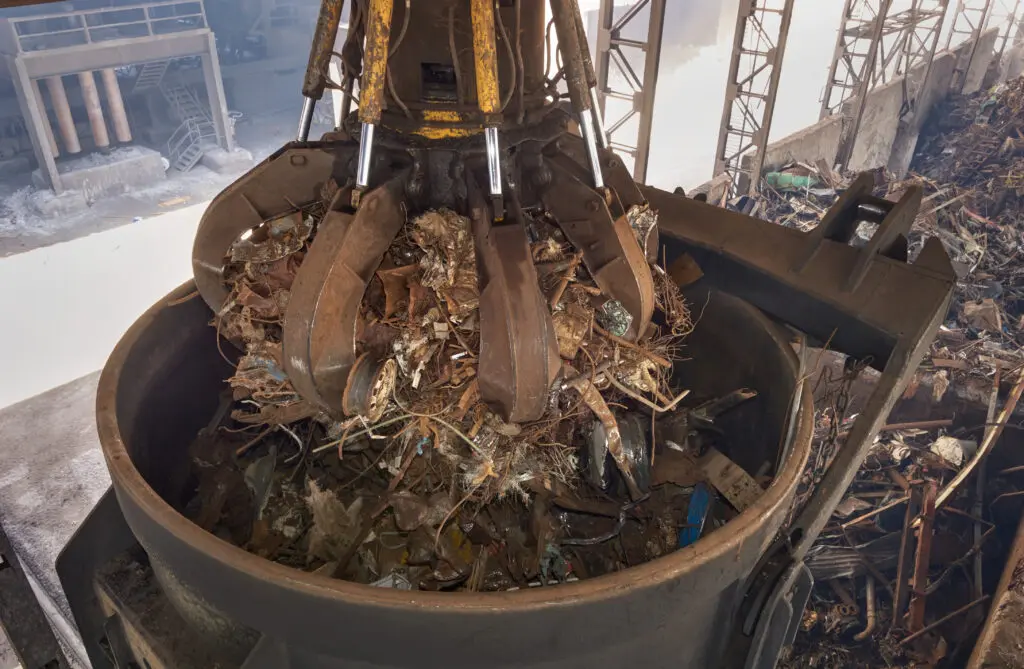Reduced ferrous scrap flows amid a global decline in the demand for recycled steel concerns those reflecting on the markets in the latest quarterly Mirror from the Bureau of International Recycling.
Shane Mellor, president of the BIR Ferrous Division, points out that most contributors were commenting just as President Donald Trump was imposing tariffs on steel imports to the US – ‘a sudden and seismic event both for our recycling industry and for our steelmaking customers’.
‘When coupled with increasing trans-frontier restrictions on waste materials, this latest development has the potential to further impact trade dynamics and to impede production of truly green steel by disrupting established international supply chains,’ Mellor notes.
It had been feared initially that steep scrap would face tariffs but, as US recycling organisation ReMA pointed out recently, scrap imports are exempt.
Recycling ‘critical’
Mellor warns that tariffs may disturb supply chains as traditional exporters of steel to the USA seek out alternative markets, affecting the availability of recycled ferrous metals in other regions.
‘Tariffs do not necessarily result in cost savings or improved quality; however, they do emphasise recycled ferrous metal’s critical role in sustainable steel production as well as its broader environmental benefits,’ Mellor adds.
He says everyone in the recycling industry must collectively promote the message that using recycled metals instead of virgin materials in steel production offers well-documented benefits. And it was vital to ensure the recycling industry was not excluded from discussions over the definition of green steel production.
‘The recycling industry needs to be involved in this conversation as it may set the direction for government policy and private investment through new standards on green public procurement, tax incentives, credit, grants and much more besides.’
Difficult times
Meanwhile board member Denis Reuter of TSR Recycling in Germany reflects that Germany’s recycled steel market encountered a difficult environment in the fourth quarter of 2024.
‘Prices continued their downward trend, exacerbated by weak demand and production cuts in the steel industry. In particular, manufacturers of high-quality steels reduced their production owing to falling order backlogs. Inflows of recycled steel also declined, especially for new grades such as swarf.’ Overall, Reuter concludes, the market continued to be characterised by uncertainty and limited availability.
UK and USA views
Fellow member Tom Bird of Enicor reports that material continues to be in tight supply across the UK market, with most operators seeing incoming supplies at low levels. ‘We have seen price reductions into both the domestic and dockside markets over the last couple of months as export levels were reduced by around US$ 20-30 per tonne on the back of poor steel demand and lower outputs from the mills.’
For the US, George Adams of SA Recycling notes ‘a slow but steady turn in the domestic HRC market’ in January. ‘January proved to be the beginning of an overall US market recovery fuelled by a recycled steel supply deficit. This supply-driven market garnered dealers a US$ 20 increase in recycled steel prices in January, with hopes of more to come in February.’
Noting the uncertainty surrounding the future of tariffs and international trade, Adams says the US market for new steel continues to improve.
‘Recycled steel dealers are optimistic that there is at least a 60- to 90-day cycle of strength in the market. That will ultimately be decided by consumers but, for now, we’ll savour the win.’
Don't hesitate to contact us to share your input and ideas. Subscribe to the magazine or (free) newsletter.



